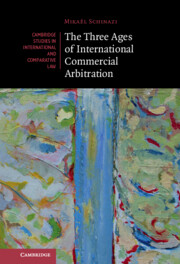This article examines China’s path to joining the International Chamber of Commerce (ICC), a private international organization founded in Paris in 1920, of which China was a member from 1931–1949 and from 1994 onwards. The article charts the actors and debates behind two meaningful encounters. The first took place while the Nanjing government was raising funds for economic reconstruction, and the ICC aimed to mediate China’s fundraising efforts through private multilateral channels. The second was in the 1980s, when the People’s Republic was seeking to enter the world trade system. ICC members acted as educators and facilitators of world trade practicalities for the People’s Republic, which eventually rejoined the ICC in 1994. The article draws on Chinese, European, and American source material collected from governments, chambers of commerce, and private businessmen to make a twofold contribution. First, it adds nuance to the narrative of China’s economic internationalization by identifying an important non-governmental diplomatic channel. Second, it questions the ICC’s self-proclaimed identity as a non-political economic organization by showing how the political was indissociable from the economic when it came to China’s membership.
